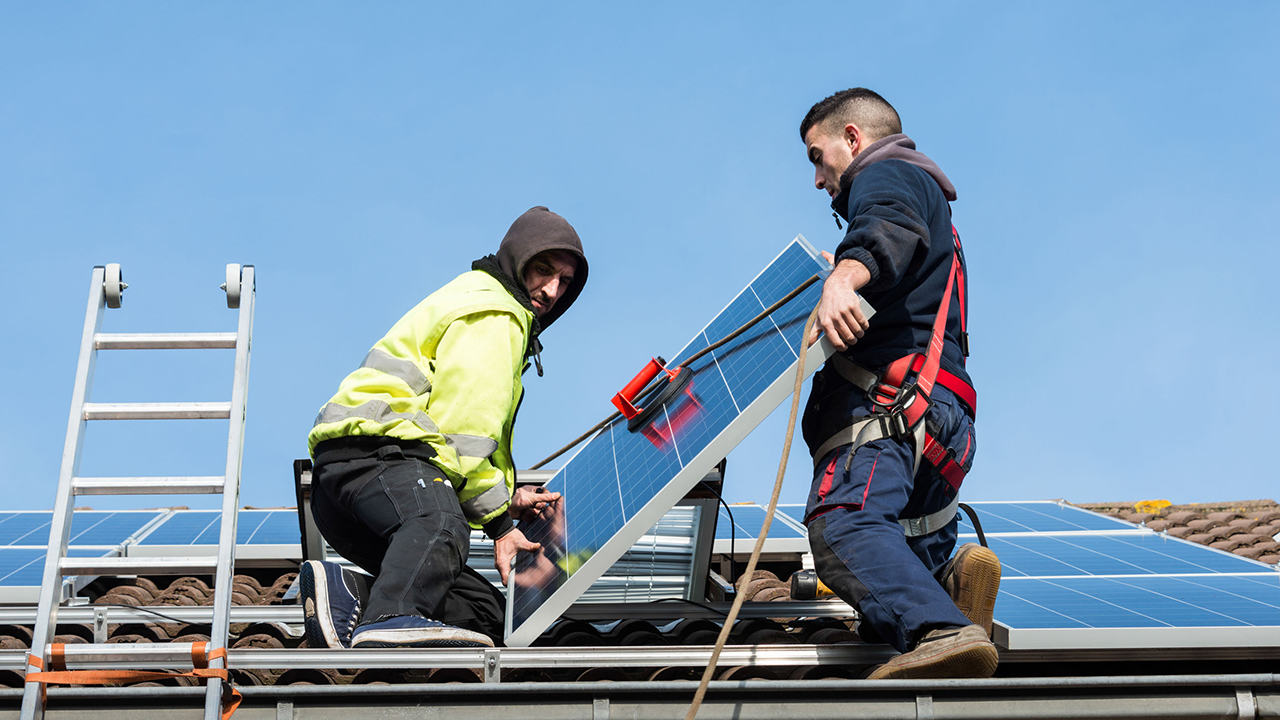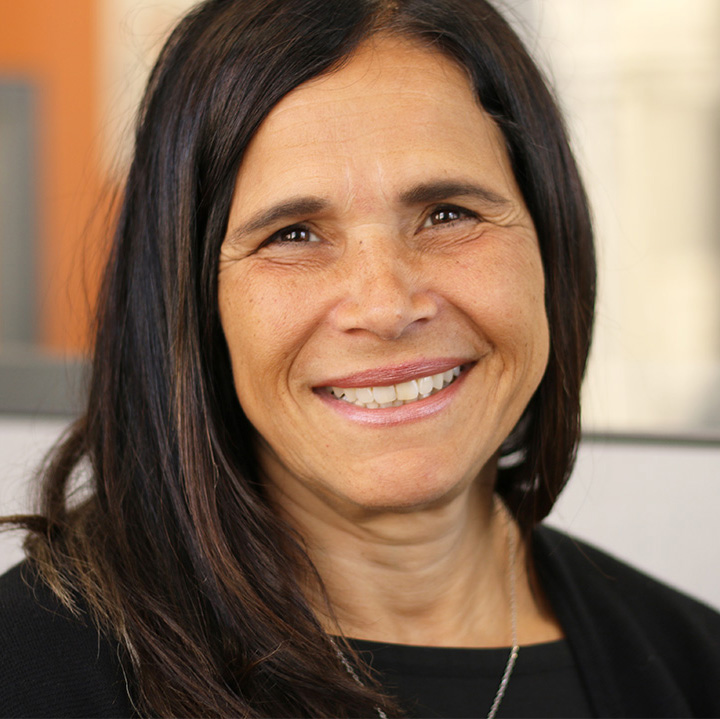
With the passage of the federal Infrastructure and Investment Jobs Act in 2021 and the Inflation Reduction Act in 2022, as well as a historic 2023 state legislative session which saw at least $3 billion in direct investments for climate and clean energy over the next two years, Minnesota is poised to take significant strides towards meeting our climate goals, now underpinned by Minnesota’s passage of new science-based goals of reducing emissions 50% by 2030 and being net-zero by mid-century.
However, there is a need to ensure that this influx of funding and programs adhere to the principles of Justice40 and are benefiting the communities most impacted by climate change, pollution, and systemic racism, while also supporting real economic and workforce development for these communities, who tend to be under-resourced and have so far been under-represented in the clean energy economy.
To meet this moment, Fresh Energy has launched a new department to bridge our clean energy policy expertise to economic and community development and finance by supporting equitable implementation of the transformative clean energy funding coming to Minnesota.
Despite the historic progress over the last two years for climate and clean energy at both the state and federal levels, Minnesota remains a state with stark racial disparities, especially in economic indicators such as income and homeownership. A WalletHub analysis found that Minnesota has the third largest racial wealth gap in the U.S., with Black Minnesotans experiencing the largest gaps. And separate analysis by the Minneapolis Federal Reserve Bank in 2021 found that difference between homeownership rates in Minnesota between White Minnesotans and households of color and Native Americans was the fourth-largest in the U.S., with 76.9% of White Minnesotans owning homes in 2019 compared to 43.6% of Minnesotans of color and Native Americans.
Analysis such as this underscores the need and opportunity to build upon the foundation laid by our Strategic Framework to create an equitable carbon-neutral economy in Minnesota that reduces disparities in health and wealth by expanding how Fresh Energy works at the intersection of policy and finance.
Introducing the Community Development and Finance department
Fresh Energy’s Community Development and Finance department is led by Managing Director John Vaughn. As a former University of Minnesota Humphrey Institute Leadership Fellow, John brings decades of experience working in community and economic development, alongside his recent experience with rural and tribal solar development in North and Central Minnesota from his tenure as Executive Director of the Rural Renewable Energy Alliance (RREAL).

Prior to entering the renewable energy space, John spent 10 years leading the East Side Neighborhood Development Corporation in Saint Paul, where he worked on small business growth, child lead poisoning mitigation, and housing development. He also worked in Northeast Minneapolis in community development prior to the East Side and in 2022 partnered with Minnesota Housing Partnership to recruit emerging housing developers of color in Northern Minnesota. Underpinning these roles is a passion and commitment to working with communities of color, under-resourced households, and those outside the Twin Cities.
The Community Development and Finance department sits within Fresh Energy’s Energy Access and Equity team to ensure that our entry into finance and economic development through a clean energy policy lens firmly centers racial, geographic, and economic equity. As a cross-cutting endeavor that encompasses all clean energy solutions, this department will work across Fresh Energy’s policy teams.

“When the Community Development and Finance position was first brainstormed, the possibility of billions in federal and state funding for clean energy was not yet real. With these investments now at the ready, I am thrilled to have John on board to guide how Fresh Energy can clear the path for these funds to flow to the communities most impacted by climate change, and evolve how Fresh Energy works as a policy expert in the realm of public and private capital to support more equitable deployment of clean energy solutions.” – Anjali Bains, Lead Director, Energy Access and Equity
Community Development and Finance department priorities

With the passage of federal and state clean energy funding, a key priority for the new department will be supporting equitable implementation of funding opportunities and determining how to guide and track funds so that they meet or exceed the goals of the Justice40 Initiative, which states that at least 40% of the benefits of certain federal funding must reach communities that are “marginalized, under-served, and overburdened by pollution,” and which tend be communities of color and under-resourced households. This federal goal is also reflected in Minnesota’s Climate Action Framework, which sets an action step to work with “disproportionately impacted communities to implement the intent and approach of the Justice40 Initiative.”
The Community Development and Finance department, in coordination with the Energy Access and Equity team and other policy staff at Fresh Energy, will also focus on supporting the next steps for the creation and implementation of the Minnesota Climate Innovation Finance Authority (MN CIFA), an entity similar to a state green bank that was seeded with $45 million in the 2023 session of the Minnesota Legislature and tasked to finance clean energy projects across the state, with a goal that at least 40% of its financing activities must flow to “environmental justice” communities as defined by the MN CIFA legislation.
As a new department tasked with building out an emerging avenue of change for Fresh Energy’s equity and climate goals, this department has the potential to work on a myriad of other opportunities, including assessing and supporting technical assistance providers on outreach to community groups; private capital deployment and clean energy market building; and workforce development in pursuit of ensuring a just and equitable energy transition.
Underscoring all this work will be dedicated time and effort to refresh existing partnerships and build new relationships with organizations and communities at the frontline of climate change, particularly those serving or led by Black, Indigenous, and People of Color (BIPOC).

“The Community Development and Finance department is well suited to meet the moment and help Fresh Energy think creatively about how we achieve our vision of a just, prosperous, and resilient future for all Minnesotans. I’m especially proud that the Energy Access and Equity team is leading to ensure our state and federal policies deliver on the promise of the Justice40, which prioritizes getting resources to communities most impacted by climate change.” – Brenda Cassellius, Executive Director
What’s next
Ensuring that Minnesota’s continued transition to clean energy is equitable and just is crucial to reducing the health and wealth disparities in our state and building an inclusive and fair clean energy economy. The Community Development and Finance department will further the work already begun at Fresh Energy and help us better achieve our vision as an organization by building our capacity to make positive change on climate and clean energy in new arenas such as economic development and community financing. Let’s begin!
